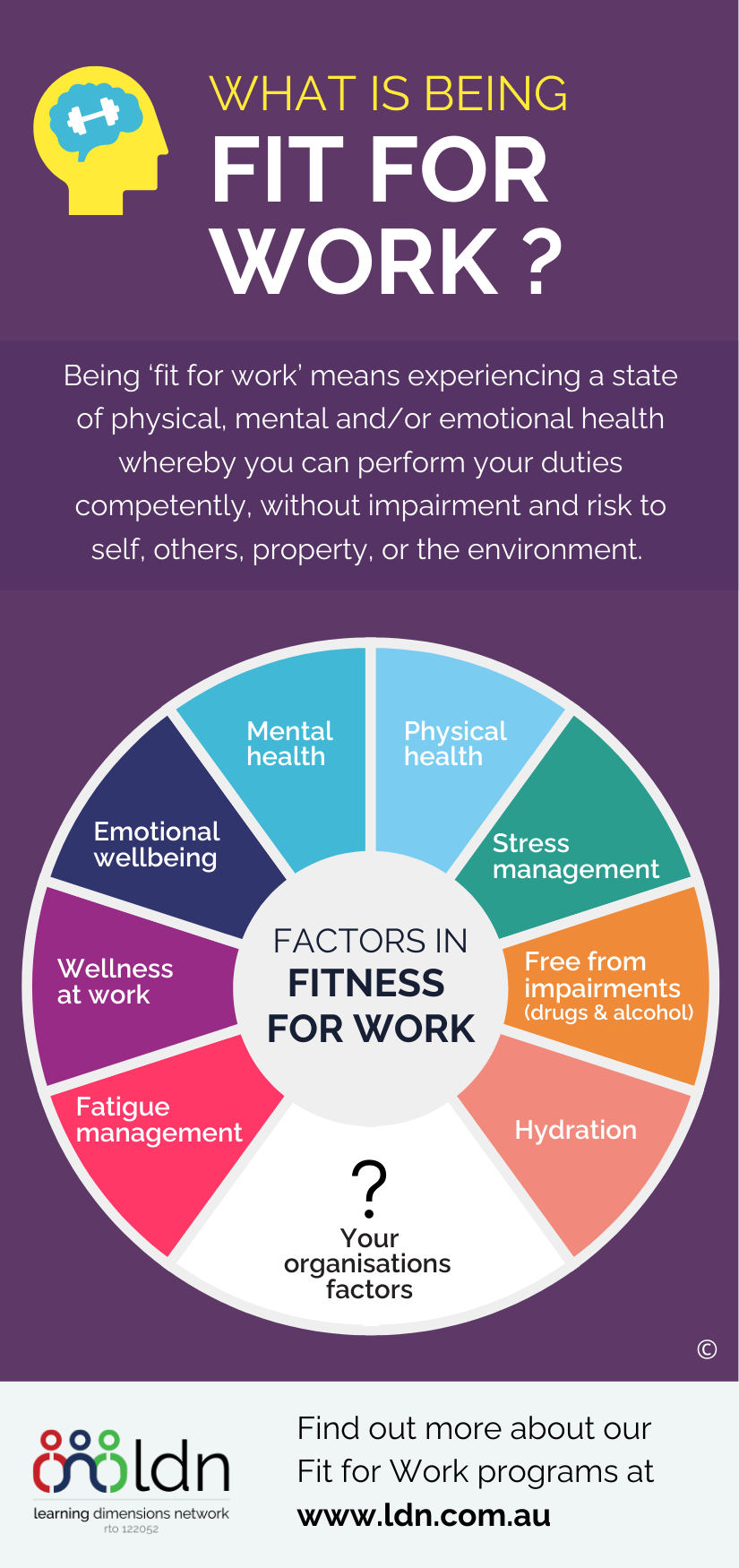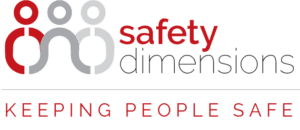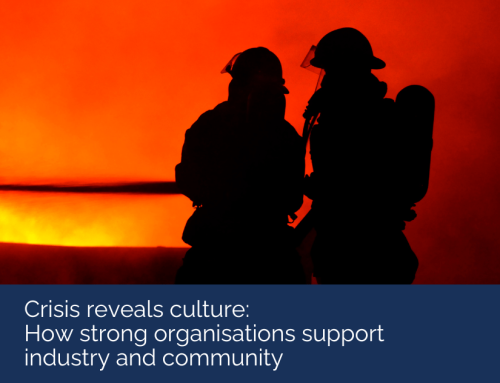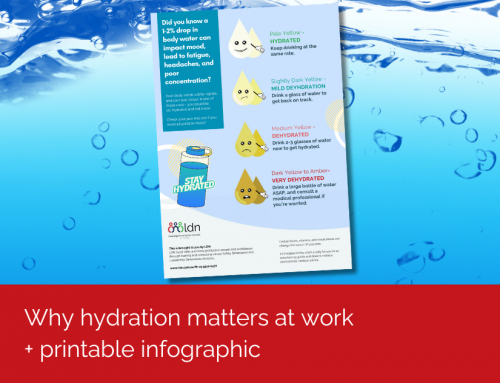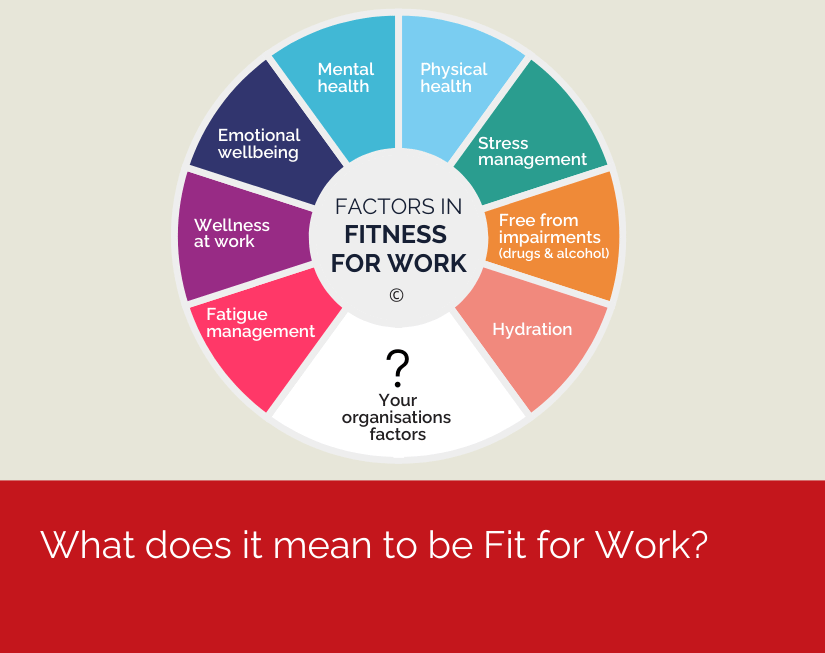
Fitness for work is rarely about one issue in isolation. Fitness for work encompasses multiple factors that empower employees to perform safely and effectively.
An employee can be physically capable yet mentally overloaded, well-intentioned yet fatigued, or compliant on paper but struggling in practice. When these factors interact, they directly affect safety, performance, and decision-making at work.
For employers, fitness for work goes beyond meeting legal requirements. It is about understanding the conditions that influence how people actually turn up to work each day, and whether they are equipped to perform their role safely, consistently, and effectively.
This infographic breaks fitness for work into eight core, interconnected factors, with space to consider additional factors specific to your organisation. It is designed to support practical conversations, clearer policies, and more informed decisions about risk, wellbeing, and performance.
Taking this whole-of-system view helps organisations move away from tick-box compliance and towards fitness for work practices that are realistic, proportionate, and workable.
Factors in being Fit for Work
Physical Health: Employees need the physical readiness to handle their roles, whether through manual labour, prolonged sitting, or high-stress tasks. Physical health involves regular exercise, proper posture, quality sleep, nutrition, and the ability to perform tasks without physical limitations.
Psycological Health: Employees benefit from a stable and positive mental state to perform tasks effectively and consistently.
Emotional Wellbeing : Emotional wellbeing enables employees to manage workplace stress, conflict, and change without becoming overwhelmed. Emotionally resilient employees collaborate, lead, and make sound decisions under pressure.
Wellness at Work: Workplace factors affecting an employee’s experience include physical safety, mental health, the work environment, social interactions, and diversity and inclusion. Read more about the distinction here >>.
Fatigue Management: Organisations support employees by proactively preventing exhaustion through regular rest breaks, balanced workloads, and prioritising rest and recovery to maintain productivity and safety.
Free from Impairment: Workers must be free from substances or conditions that affect performance or compromise workplace safety, including drugs, alcohol, and fatigue-related impairments. Taking a proactive approach through drug and alcohol testing programs, fatigue assessments, and behavioural observations helps identify and manage risks before they impact safety.
If your workplace engages third-party testing providers to help enforce policies and meet workplace safety regulations, you need a clear policy in place to ensure workers understand their rights, responsibilities, and obligations around on-site drug and alcohol testing. Some organisations take this further by offering personal breathalysers or drug testing kits, giving employees the ability to check their fitness for work before arriving on-site.
Stress Management: Managing workplace stressors effectively to prevent them from hindering employee performance and wellbeing.
Hydration: Encouraging adequate hydration to sustain focus and energy, as even mild dehydration can impair decision-making and concentration.
Your Organisational Factors: Consider unique organisational factors, like change management, workload, work environment, leadership style, and team dynamics, that might impact your employees’ fitness for work.
All these factors are interconnected, and improving one can strengthen overall workplace safety, productivity, and employee wellbeing. By taking a holistic approach to fitness for work, organisations ensure employees are physically, mentally, and emotionally prepared to perform at their best, while also meeting legal obligations and creating a culture of safety, compliance, and high performance.
